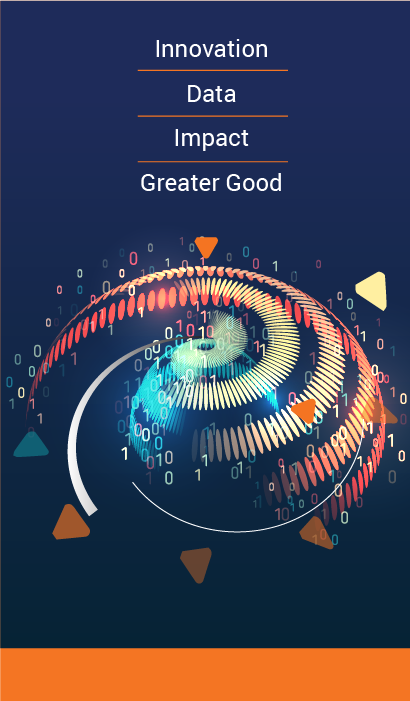

About

LMI and the UVA School of Data Science are seeking innovative, impactful, and attainable solutions that use artificial intelligence (AI) and/or machine learning (ML) to address a social justice issue.
-

Social justice means equal rights and equitable opportunities for all. The state of social justice issues in the United States and within areas local and regional to the University of Virginia is complex, with progress in some areas alongside ongoing struggles and challenges. Major social justice issues include racial inequality, economic disparity, gender inequality, LGBTQ+ rights, criminal justice reform, immigration, healthcare access, housing, education and environmental justice.
Many of these issues are deeply interconnected with broader issues of inequality, racism, and systemic injustice. For example, where a family lives often determines the quality of the education their children receive due to school district boundaries, which are tied to property values. This perpetuates cycles of inequality: children from low-income families and communities of color are more likely to attend underfunded schools, limiting their opportunities for upward mobility. Additionally, students experiencing housing instability, such as homelessness, often struggle to succeed academically, as they lack the necessary stability to focus on their education.
Significant activism and advocacy for social justice are often driven by grassroots movements and not-for-profit organizations supported by philanthropic donations or government funding. However, many of these issues are deeply entrenched in historical systems of inequality, and progress can be slow and uneven. Legislative battles, political polarization, and economic inequality present ongoing challenges to achieving broader social justice goals. Addressing these issues requires a commitment to policy changes that promote equity.
-
Your task is to develop a technical solution using your programming, AI, ML, data visualization, and application development skills that will support efforts to address a social justice issue. Because of the complexity of impacting social justice, you must also consider the feasibility and adoptability of your solution – how will people use it? Is it difficult to understand and interact with? How easy is it to distribute it to everyone who needs it? End users of your solution could be frontline providers, policy makers or those lobbying for policy change such as not-for-profit organizations. The goal is to create solutions that foster fairness, equal opportunities, and a more inclusive society.

Challenge Expectations
- Form a team of 2-4 people. Consider who to include on the team to address both the data science approach and AI adoption/ change management aspects of the challenge.
- Identify a social justice topic that interests you.* Consider feasibility when selecting a topic, as that largely factors into evaluation. It's OK to address a smaller, but attainable, part of the broader issues.
- Create your solution:
- Build a prototype AI solution that addresses your social justice topic.
- Use data provided, and/or find publicly available data sources that augment what was provided. If you would like to use data that you have access to, but is not publicly available, please contact us.
- For this challenge, you do not have to build a final User Interface, however, your solution should include a way to show outputs and/or facilitate action.
- Develop a change management / adoption strategy -- How will you get people to engage with, and trust, what you built. Consider: who will your change affect, and what are its impacts? How will you communicate the changes and address feedback? How will you deliver training on this new technology?
- Present your solution:
- To register for the challenge, you will need to complete a 1-2 page Executive Summary outlining the topic you chose, your proposed technical solution, and your plan for adoption. Details for how to submit this document can be found on the Rules page.
- At the completion of this challenge, you will deliver a “Shark Tank” style presentation to our panel of judges. You may choose to do a PowerPoint presentation, share a recorded video, do a live demo, or present in another way that best demonstrates your technical solution and adoption strategy.
*For topic inspiration, visit the Resources page.


Registration Materials
Every team that participates in the competition must submit a short Executive Summary to our panel of judges. The purpose of this Executive Summary is to confirm interest in the data challenge and demonstrate progress. Optional feedback sessions will be available in mid-October 2023.
The following information is due by September 29, 2023 and should be submitted via the registration form on the Overview page. You can find a template for this on the Resources page.
- Team Name
- Team members (name, UVA email)
- Project Title (< 10 words)
- Description of project (< 500 words)
- What health equity issue are you focused on?
- What is your technical solution/approach?
- What is your current plan for adoption/change management? (Who is your target population? How will you deliver your solution? How will you communicate about it and train people on it? How will it be maintained?)
- List of data sources (as applicable)
- Do you have every data source you need? Is it publicly available?
Final Presentation
The final presentation will be a “Shark Tank” style presentation to our panel of judges. You may choose to do a PowerPoint presentation, share a recorded video, do a live demo, or present in another way that best demonstrates your technical solution and adoption strategy. Be creative!
You should plan for 15 minutes with the panelists. This includes:
- 10 minute presentation – the structure is up to you, but remember the evaluation criteria so make sure to include:
- What topic did you target?
- What is your technical solution?
- What is the outcome of your solution?
- How are you approach AI adoption and change management?
- 5 minutes Q&A with panel


